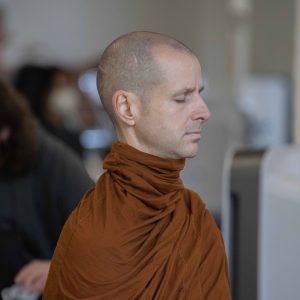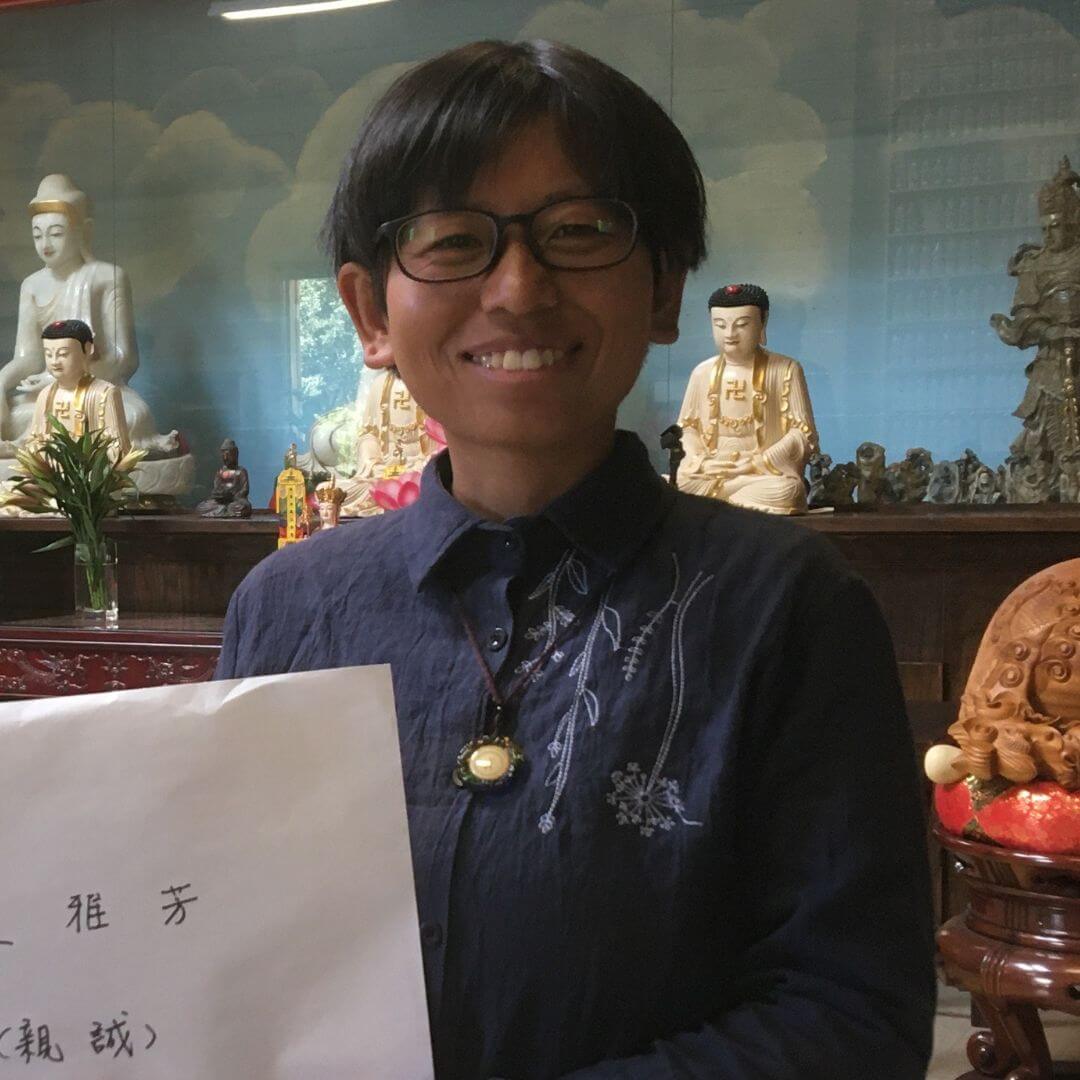
Hometown:
Cincinnati, OH
What was I doing before DRBU?
Living at a Pa Auk Sayadaw monastery/meditation center in Thailand, practicing many hours a day of formal sitting meditation.
Influential class I’ve taken:
Studying Sanskrit (formally) and Pali (informally) with Professor Sean Kerr has been a blessing. He is an impressive meditator as well as being a formidable Indic language scholar and teacher. His willingness to take as much time as necessary to answer any student’s question about most any topic at most any time was inspirational. In addition to the reading and translating skills I picked up in class, his friendliness and patience have left a mark on my heart, which I think may last a lifetime.
Influential book I’ve read:
The Heart of the Prajñāpāramitā Sutra. Though I had read this short text before, I had never wrestled with understanding it as I was forced to do in our Buddhist Classics 1 class. Being a traditional Theravada monk with a fair degree of attachment to my Pali Canon ideas about the Four Noble Truths, I found the text’s bold assertions that “there is no suffering, no cause of suffering, no ending of suffering, and no way leading to the end of suffering” an affront to my fundamental life views. But reading and reciting and discussing the text over and over during the two to three weeks we discussed it in class did have a transformative effect on my psyche. Specifically, reciting the mantra at the text’s end (“Gate gate pāragate pārasamgate bodhisvāḥ”) allowed my grasping mind to let go (to some appreciable degree) of its clinging to a specific, narrow view of Theravada doctrine. And that letting go was a little-bliss … especially in comparison to the dukkha of holding on to it.
Concept that blew my mind:
One concept that blew my mind was Homer’s ability to craft elaborate metaphors. There is an especially long one featured at the end of the Iliad describing the shield which Hyphestus was making for Achilles. The detail with which it is described and the parallels it reveals with the plot’s narrative are profound. Here is a literary and creative genius who humbles any sense of self-congratulation that I might feel at being able to string a few words together. This perspective is truly a gift.
Challenge(s) I faced:
Attending DRBU and living in the Sudhana dorms has been the first time in my monastic life (since 2006 when I first entered the monastery) that I have been living in such close proximity to a predominantly non-monastic agroupation. In fact, for most of last year, I was the only monastic living at Sudhana Center. Questions this raised for me included: How can I fit in in a way which both maintains the rigor, dignity, and seclusion of my monastic discipline while at the same time remaining friendly, available, and not aloof? It seems this will be an ongoing question but one which I look forward to learning the nuances of.
How has DRBU changed me?
I’m remembering how to be friends with non-monastics, American people my own age ;).
What surprised me about DRBU?
How monk-friendly all the staff, faculty, and students have been. I wasn’t expecting people to be unfriendly, but I was expecting people to be skeptical and perhaps even unsympathetic to playing along with an American monk and his many rules. What I have found, however, has been almost universal kindness and supportiveness of me and my monkness.
Title of senior essay/a recent paper:
“Cook Knowledge and Book Knowledge: Are the Skills of Being a Forest Monk and Those of a Study Monk Mutually Exclusive?”
What is it about?
Examining the fusion of the two archetypes which bridge my life as a DRBU student, that is, the role of the meditation-focused, naturalistic “Forest Monk” and the intellectual, brain-heavy character of the “Study Monk.” The paper compares quotes from the Pali Canon and from the modern meditation teacher Ajahn Lee (read for Buddhist Classics I) with passages from Chuang Tzu (read for Chinese Classics II).
What is it really about?
Trying to understand how I can be both a good, traditional monk and a holistic person (who, honestly, sometimes enjoys reading more than meditation).
What language are you taking?
Sanskrit and Pali
What’s your service scholarship (work study) job?
Kitchen cleaning and work for Spiritual Life (e.g., cleaning the Buddha Hall, writing about monasticism at DRBU, upkeep of the Spiritual Life Announcement Board, etc.)
Do you have a daily practice—if so, what is it?
Early rising; bowing; mantra recitation; reading/translating the Pali Canon/Commentaries; morning and evening group meditation; trying to remain awake to the truth of not-self throughout the day.
What do you do for fun?
Walk in circles for miles and miles while listening to audiobooks; drink water; wake up early; study using ANKI spaced repetition.
How has financial aid played a role in your being here?
Being a 38-year-old ordained monk in a lineage that prohibits the use of money, I would not be able to attend DRBU if it were not for financial aid support. I am exceedingly grateful for the gift of being able to attend DRBU and will do what I can to live up to the offering.
How does what you’re learning here carry out into the world?
My first year at DRBU was, with little doubt, the most intellectually fecund year of my life thus far… and… I really enjoyed it. Seeing how I can both practice intellectual rigor and maintain my monkness has been eye-opening and will inform how I monk on into the future. That is, study and continuing education will, henceforth, form a cornerstone of my monastic life no matter what monastic environment I end up living in.


